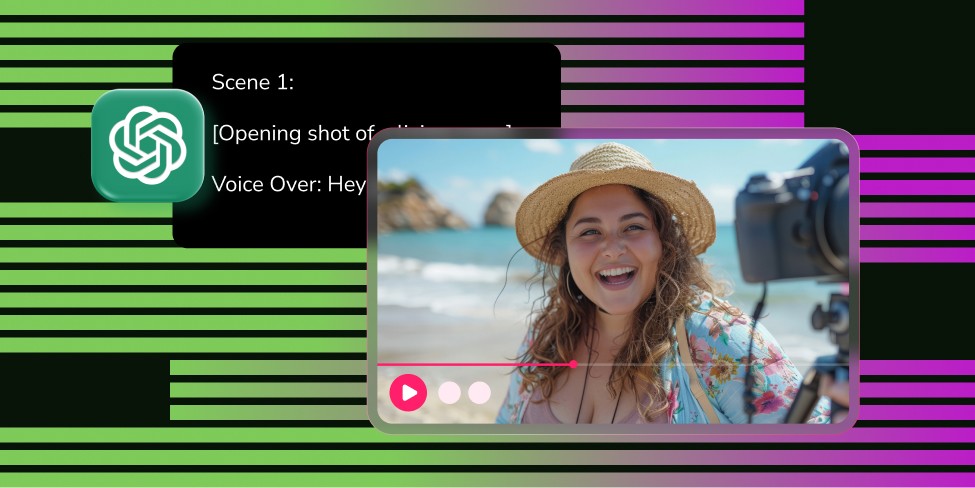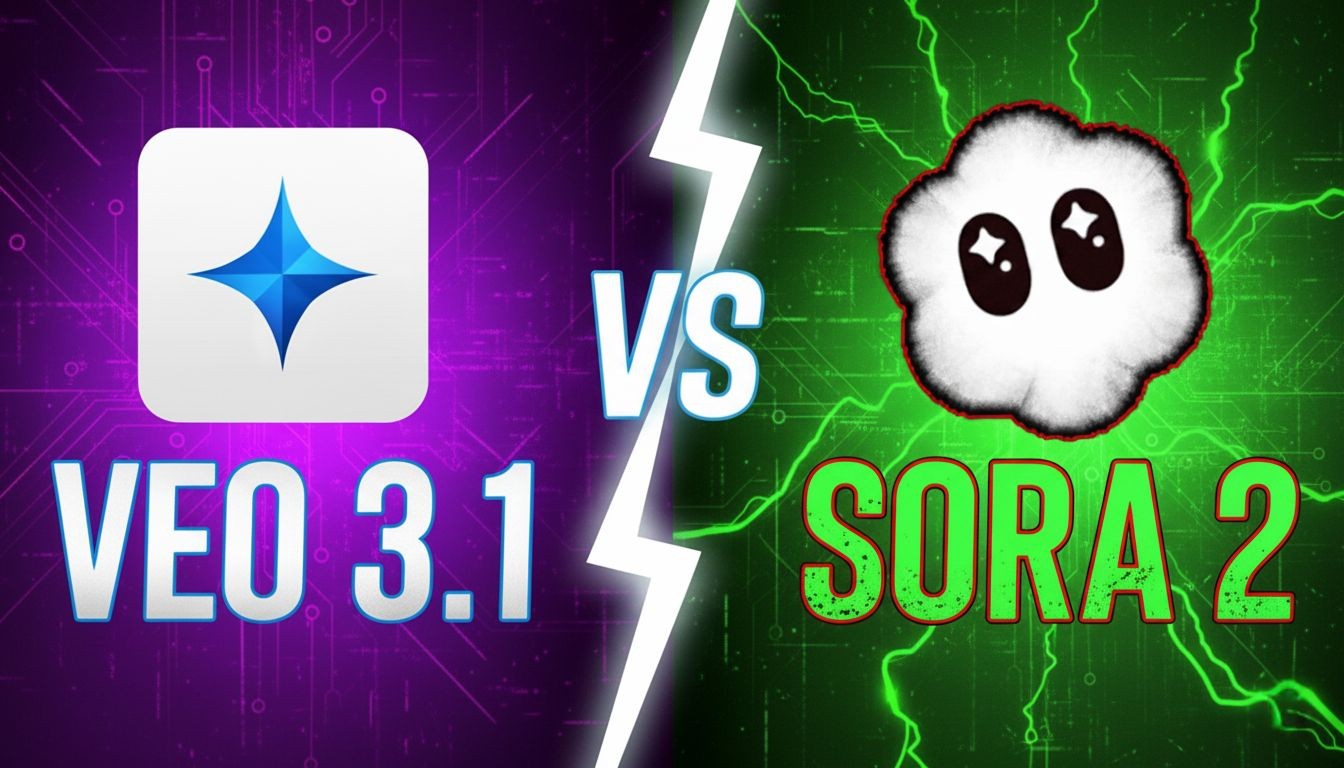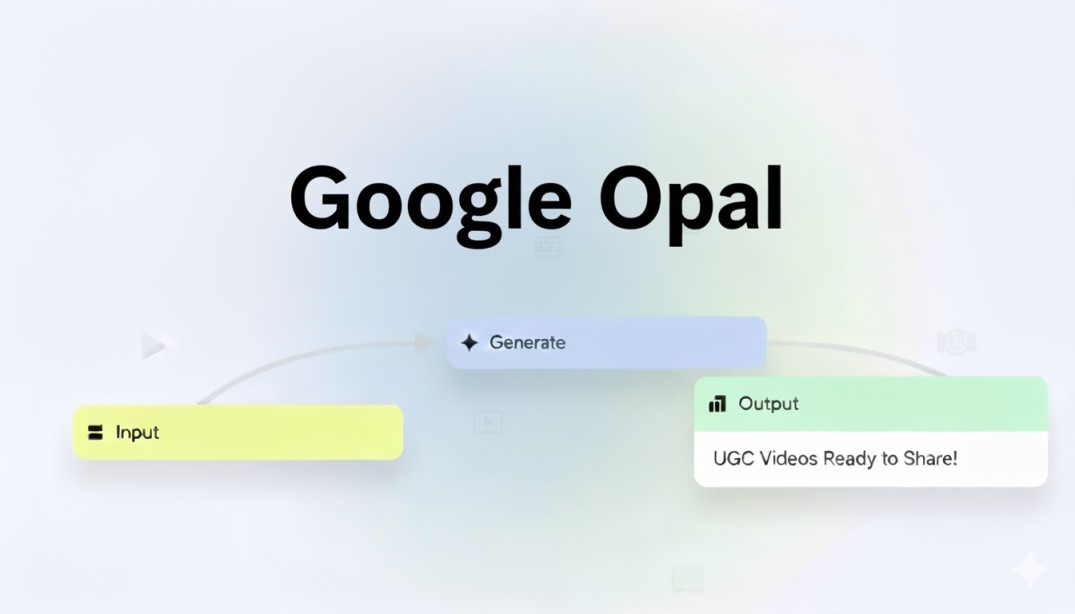Introduction
The AI browser wars have officially begun. When Perplexity dropped Comet, they made a bold entry into agentic browsing - giving us a glimpse of AI that doesn't just answer questions, but actively navigates the web on your behalf. Then OpenAI fired back with Atlas, proving this space is heating up fast.
Two of the biggest names in AI are now competing to define what intelligent web navigation should look like, and the implications for how we interact with the internet are massive.
I've spent countless hours testing both tools, diving deep into their capabilities, and honestly? The results surprised me. If you're wondering which agentic AI browser deserves your time and money, you're in the right place. Let me walk you through everything I discovered during my hands-on experience with these two AI agent browsers.
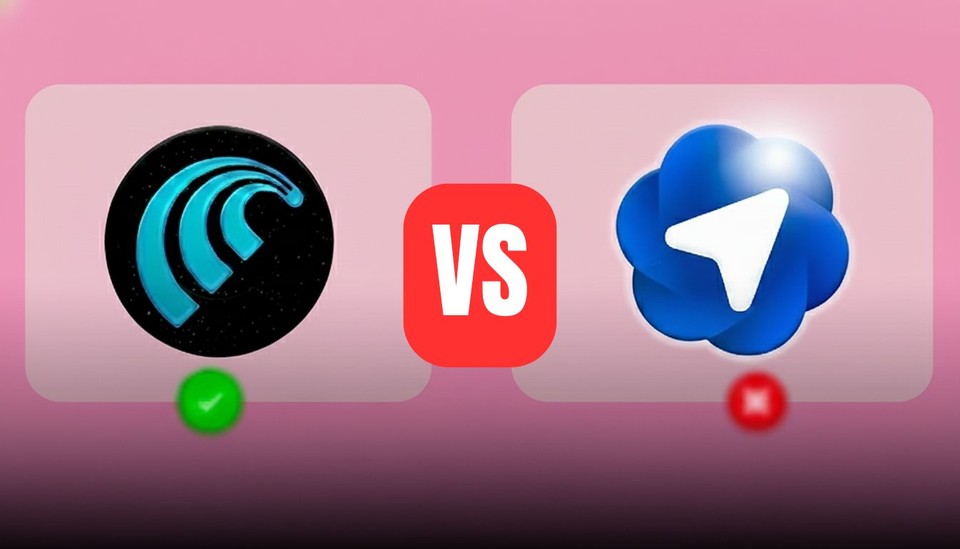
What Makes These AI Browsing Tools Special?
Before we dive into the comparison, let's talk about what makes these autonomous browsers different from traditional search engines. Both Atlas and Comet represent a new breed of AI browsing tools that don't just find information - they understand context, synthesize results, and present findings in conversational, human-like responses.
ChatGPT Atlas is OpenAI's latest attempt to integrate real-time web search directly into its conversational AI platform. Instead of being limited to training data, Atlas can pull fresh information from across the web and incorporate it seamlessly into ChatGPT's responses.
Meanwhile, Perplexity's Comet takes a different approach. Rather than being an add-on feature, it's built from the ground up as a dedicated research and search model, designed specifically for the kind of deep, contextual browsing that modern users demand.
Atlas vs Comet - Real-World Testing Experience
Let me be completely honest about my testing methodology. I didn't just run a few quick searches and call it a day. I spent hours with both platforms, testing everything from simple factual queries to complex research projects. I compared speed, accuracy, source quality, and overall user experience across dozens of different scenarios. And if you want another perspective, definitely check out this detailed comparison video by a fellow creator who ran his own in-depth tests - it’s a great watch for seeing how Atlas and Comet perform side by side.
Speed: The First Impression That Matters
This is where things get interesting. When I first fired up Atlas, I was excited about the seamless integration with ChatGPT. But that excitement quickly turned to frustration when I realized how slow it actually is.
Every Atlas search took between 10-15 seconds to complete. That might not sound like much, but when you're in a research flow, those extra seconds feel like an eternity. I found myself getting distracted, checking other tabs, or even starting new conversations while waiting for results.
Comet, on the other hand, consistently delivered results in 3-5 seconds. The difference is night and day. When I'm researching a topic, that speed difference allows me to maintain my train of thought and explore ideas more fluidly.
Accuracy and Source Quality: Where It Really Counts
Speed is great, but accuracy is everything when it comes to AI agent browsers. This is where I spent the most time testing, running both platforms through challenging queries about recent events, technical topics, and controversial subjects.
Comet consistently pulled more relevant sources and provided more comprehensive answers. When I asked both platforms about recent developments in AI legislation, Atlas sometimes pulled outdated articles or missed key recent updates. Comet found the latest government documents, recent news articles, and even relevant academic papers.
The source citation system in Comet is also superior. When it presents information, you can click on any statement and see exactly where that specific piece of information came from. Atlas shows sources at the bottom of responses, but connecting specific claims to specific sources requires more detective work.
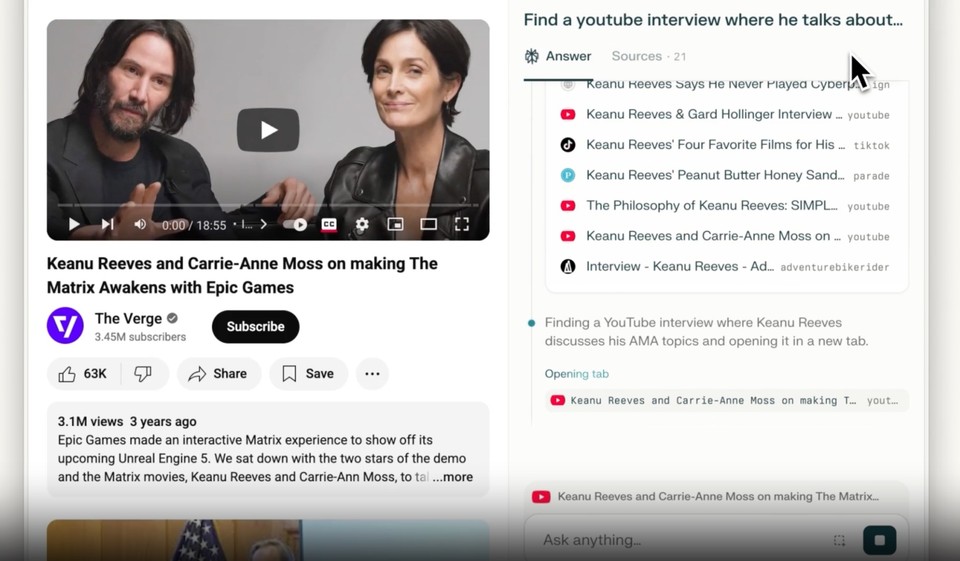
The Integration Advantage vs. Specialized Excellence
Here's where the decision gets tricky. Atlas has one significant advantage that I can't ignore - it's built directly into ChatGPT. This means I can search for information and immediately use that data for writing, coding, or brainstorming without switching apps.
For example, when I was working on a content strategy last week, I used Atlas to research trending topics, then immediately asked ChatGPT to help me create an outline based on those findings. That seamless workflow is genuinely valuable.
Comet requires you to switch between Perplexity and whatever other tools you're using. If you want to take Comet's research and feed it into ChatGPT for content creation, you'll need to copy and paste between platforms.
Focus Modes: For Researchers
This is where Comet really shines and pulls ahead as an agentic AI browser. The focus modes feature is something Atlas simply doesn't have, and it makes a huge difference for targeted research.
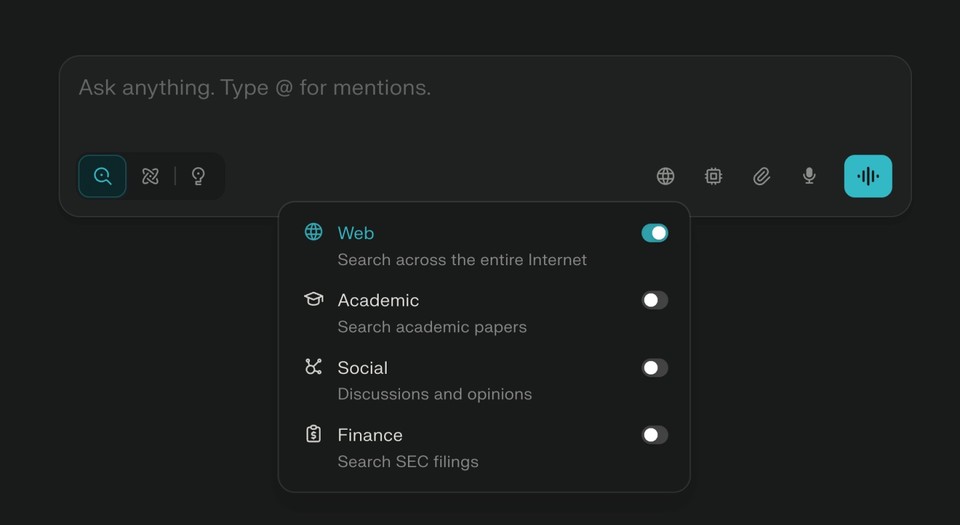
With Comet, I can tell it to search only academic sources when I need peer-reviewed information, focus on Reddit and forums when I want real user experiences, or concentrate on news sites for current events. This level of control over information sources is invaluable for serious research work.
Atlas takes a "spray and pray" approach, searching everything and hoping the algorithm picks the right sources. While this works for general queries, it's frustrating when you need specific types of information.
Pricing: What You Get for Your Money
Both platforms cost $20 per month, but what you get for that money differs significantly. ChatGPT Plus gives you access to Atlas along with all the other ChatGPT features, but you're limited in how many searches you can perform due to usage caps on GPT-4.
Perplexity Pro, on the other hand, gives you unlimited Comet searches along with access to other AI models and features. If your primary use case is research and information gathering, Perplexity Pro offers better value.
Mobile Experience: Research on the Go
I tested both platforms extensively on mobile devices, and Comet wins this category decisively. The mobile app is fast, responsive, and maintains all the features you get on desktop. Atlas on mobile is painfully slow - I've had searches time out completely, and the interface feels clunky compared to Comet's streamlined mobile experience.
For someone who does a lot of research while commuting or traveling, this mobile performance difference is crucial.
Agentic Video Editor for Content Creation
Speaking of content creation, this reminds me of another tool that's transforming creative workflows - Fliki. Just as Atlas and Comet are revolutionizing how we browse and research information, Fliki is changing how we create and edit video content.
Like these agentic AI browsers, Fliki's video editor uses a chat-based interface that feels natural and intuitive. If you're creating videos from text for global audiences, it transforms the entire workflow from creation to editing. If you're someone who values the autonomous, AI-driven approach of Atlas or Comet, you'll probably appreciate how Fliki brings that same intelligent automation to video production.
My Strategic Approach: Why Not Both?
Here's what I've discovered after months of using both platforms: the most effective approach isn't choosing one over the other, but using both strategically.
My current workflow looks like this: I use Comet for deep research when I need comprehensive, accurate information with good source control. Once I've gathered the information I need, I often take that research and feed it into ChatGPT (with Atlas available for quick follow-up searches) for content creation, analysis, or brainstorming.
This combination gives me the best of both worlds - Comet's superior research capabilities and ChatGPT's excellent content generation and reasoning abilities.
The Verdict: Which Agentic AI Browser Should You Choose?
After extensive testing, I have to give the edge to Comet as the better standalone agentic AI browser. It's faster, more accurate, offers better source control, and provides features like focus modes that Atlas simply can't match.
However, if you're already heavily invested in the ChatGPT ecosystem and value seamless integration over raw performance, Atlas makes sense as a convenient addition to your workflow. Checkout the following example screenshot of Atlas where we’re browsing the Instacart store via simple prompts.
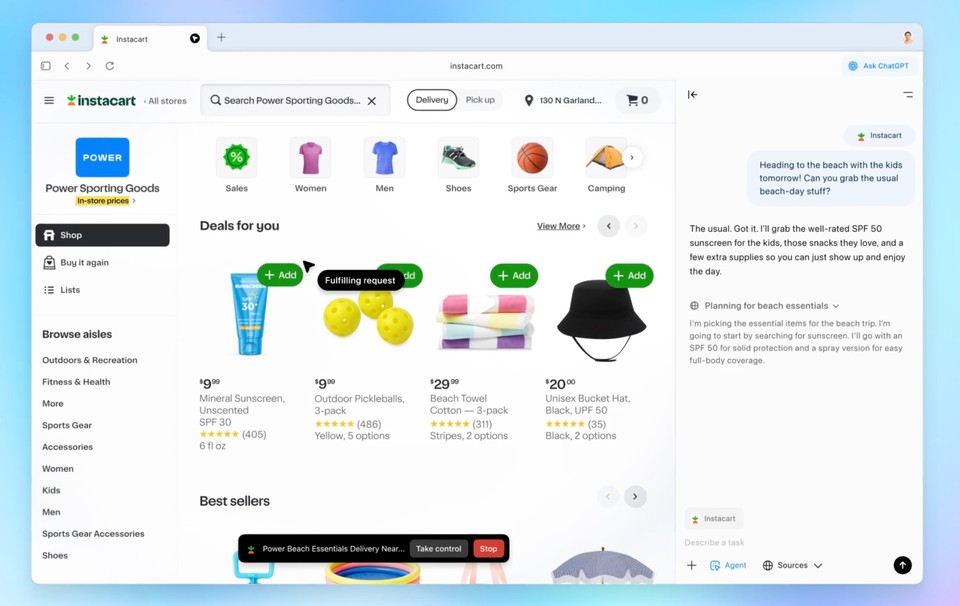
For most people doing serious research work, I'd recommend starting with Perplexity Pro and Comet. The superior speed, accuracy, and research features make it a more capable AI browsing tool overall.
The future of autonomous browsers is clearly moving toward these more intelligent, context-aware systems. Whether you choose Atlas or Comet, you're getting a glimpse of how we'll interact with information in the coming years - and honestly, it's pretty exciting.
Both tools represent significant steps forward in making AI agent browsers more useful and accessible. While Comet takes the crown in this comparison, the competition between these platforms will ultimately benefit all of us as users, driving innovation and improvements across the entire category of agentic AI browser technology.

